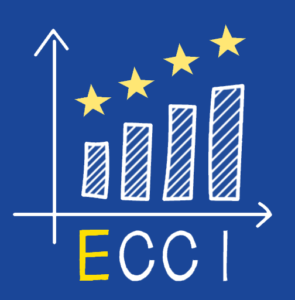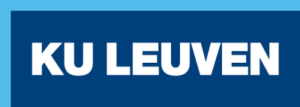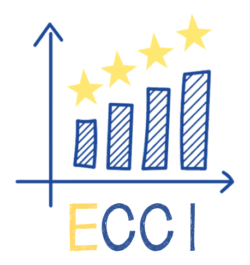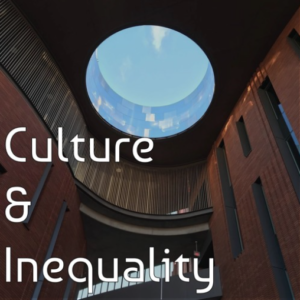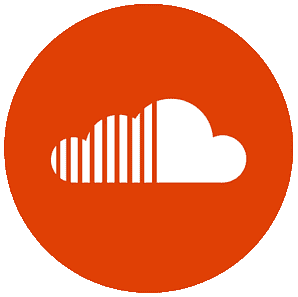Culture & inequality
A Transnational Podcast Course
As academia worldwide has been forced to shift to the digital realm, ECCI is following suit. With classroom interaction no longer being tied to physical location, our co-chair Giselinde Kuipers has assembled a cast of international scholars to share their insights in a brand-new podcast series entitled “Culture and Inequality”. We are happy to share this podcast with the global academic community.
Designed as a teaching podcast for international students, this podcast will also be of interest to academics and wider audiences. In hour-long episodes, experts from around the world discuss on such questions as: How do cultural tastes in food, music, physical beauty or arts contribute to social exclusion or privilege? Why isn’t snobbery a thing of the past? Why are most artists and cultural producers white and middle class? How do the superrich use culture to signal their status, and why do the less wealthy look up to these elite lifestyles? How do patterns of inequality develop in a globalized world marked by migration streams and increased ethnic diversity? How do class inequalities intersect with inequalities based in gender, race, ethnicity or age?
These questions, and many more, are discussed on the basis of recent academic publications and the research experience and insights of international scholars. At the end of each episode, we discuss possible discussion questions and assignments. The podcast can be used in various ways: to complement online or offline teaching, to replace in-person classes, or as an additional resource for individual students.
This is a free, collaborative, transnational podcast course. Conceived during the (first) global lockdown of spring 2020, when students and professors around the world had to move to online teaching in a matter of weeks, it offers podcasts with free “teaching packages” for students and professors. For the fall semester of 2020, 14 episodes are planned. But due to popular demand, we are now planning to continue in 2021 (and possibly even after the pandemic ends).
With contributions by (in order of appearance):
Giselinde Kuipers (KU Leuven, Belgium)
Luuc Brans (KU Leuven, Belgium)
Dave O’Brien (University of Edinburgh, UK)
Laurie Hanquinet (Universite Libre de Bruxelles, Belgium)
Phillipa Chong (McMaster University, Canada)
Jennifer Lena (Columbia University, US)
Dieter Vandebroeck (Vrije Universiteit Brussel, Belgium)
Simone Varriale (Lincoln University, UK)
Julian Schaap (Erasmus Universiteit Rotterdam, the Netherlands)
Jo Haynes (University of Bristol, UK)
Simon Stewart (University of Portsmouth, UK)
Sebastien Chauvin (Universite de Lausanne, Switzerland)
Bruno Cousin (Sciences-Po Paris, France)
Jeroen van de Waal (Erasmus University Rotterdam, the Netherlands
Joost Oude Groeniger (Erasmus University Rotterdam, the Netherlands)
Predrag Cveticanin (University of Niš, Serbia)
Yang Gao (Furman University, US)
Jonathan Mijs (Harvard University, US)
Magne Flemmen (Oslo University, Norway)
And more coming up ….
Music and photography
Timothy Dowd (Emory University, US)
Editing
Iris Verhulsdonk, Luuc Brans
With financial support of
Center for Sociological Research, KU Leuven
European Center for the Study of Culture and Inequality, VUB
This is a teaching podcast series about Culture and Inequality. It consists of thematic teaching “packages” and a closing episode. Each package focuses on a central debate or theme in the study of culture and inequality, and includes a podcast, readings (which are discussed in the podcast) and assignments.
These packages are meant for flexible use in a range of teaching settings (regular, hybrid or fully online) for undergraduate or graduate studies in social sciences or humanities. The packages and podcasts can be used as a coherent course or separately, and can be used in the order suggested below, or in another order that fits an existing course. All podcasts will be shared on various online platforms, and will be freely available.
The teaching packages
Each package consist of
- A podcast, typically consisting of a conversation/interview by the theme ‘curator’ and one or more sociologists who discuss their own and other’s work.
- 2-4 central readings (±60-70 pages); sometimes additional further materials including documentaries, visual materials.
- Discussion questions or group assignment for students. These questions/assignments can be done in smaller groups without supervision, or in seminar style meetings (online or offline). The assignments can be used as the basis for a portfolio for evaluation.
Possible teaching formats
The ‘packages’ can be used for various teaching formats, for instance:
- Students work mostly in unsupervised groups (online/offline) and use the assignments to build a portfolio to discuss with the lecturer, for instance in biweekly meetings. The podcast completely replace lectures and seminars.
- Students meet for online interactive classes with the lecturer to discuss the questions/ assignments. Because of the podcasts, these classes can be shorter than usual, e.g. 60 minutes, or more interactive. In this case, the podcast replaces lectures, but not professor-led discussion.
- Students meet in real classes, but in smaller groups or with less frequency. Podcasts replace lost face-to-face teaching time due to corona measures.
- Etc
Learning goals
Students who complete this podcast course course will
- Be aware of the state of the art in the study of culture and inequalities (in particular in cultural sociology), and be able to critically reflect on this;
- Be able to present a well-argued and well-founded assessment of studies in this field;
- Be able to distinguish the main theoretical and methodological approaches in the study of culture and inequality and to critically reflect on their strengths and weaknesses.
- Be able to apply scholarly insights regarding culture and inequality to (their own) everyday experience and contemporary social issues and developments;
- Be able to identify cultural processes, social inequalities, and their interconnections across various social domains (e.g. arts, migration, health), and thus to connect this field to other subfields of sociology and other social sciences;
- Be aware of the political, moral, ethical and policy issues associated with the relation between culture and inequality in contemporary societies, and be able to critically reflect on this.
The course: podcasts, readings & assignments
The first full packages with podcast and assignment are now online. More will follow soon!
- Culture, inequality, boundaries. Theoretical traditions and core texts.
Giselinde Kuipers & Luuc Brans (KULeuven, Belgium) - Growing inequalities, shifting cultural boundaries 1: cultural consumption
Giselinde Kuipers & Luuc Brans (KULeuven, Belgium) - Cultural boundaries: Snob to omnivore to …?? New modes of cultural distinction
Dave O’Brien (University of Edinburgh, UK) & Laurie Hanquinet (Universite Libre de Bruxelles, BE) - Growing inequalities, shifting cultural boundaries 2: cultural production
Philippa Chong (McMaster University, Canada) & Jennifer Lena (Columbia University, US) - Social mobilities and cultural inequalities
Dave O’Brien (University of Edinburgh, UK) & Jennifer Lena (Columbia University, US)
- Classed bodies: Weight, appearance and class distinction
Giselinde Kuipers & Dieter Vandebroeck (VUB, Brussels, BE) - Culture and inequality in intra-European migrations
Giselinde Kuipers & Simone Varriale (University of Lincoln, UK) - Race, ethnicity and gender in popular music
Julian Schaap (Erasmus University Rotterdam, NL) & Jo Haynes (University of Bristol) - Elite cultures
Giselinde Kuipers, Sebastien Chauvin (University of Lausanne) and Bruno Cousin (Sciences-Po, Paris, FR)
- Food and health inequalities
Julian Schaap and Jeroen van der Waal (Erasmus University Rotterdam. NL) - Evaluative judgements: fields, value and time
Simon Stewart (University of Portsmouth, UK) - Beyond the Euro-American culture bubble
Giselinde Kuipers, Predrag Cveticanin (University of Niš, SR) & Yang Gao (Furman University, US) - Cultural beliefs about inequality
Giselinde Kuipers and… ? - Closing episode
Giselinde Kuipers and Dave O’Brien
